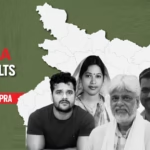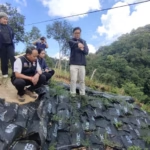BANGKOK – Thailand is raising a glass to a rule change many see as long overdue. After more than 50 years, the government is scrapping the alcohol ban on selling alcohol between 2 p.m. and 5 p.m., a rule first brought in to stop civil servants drinking during working hours.
From early December, this long-standing restriction will be paused for a six-month trial so the country can test, taste, and judge before any permanent decision.
Picture a hot afternoon at Chiang Rai’s night bazaar, the air thick with the smell of som tam and grilled meat, while tourists haggle over hill tribe crafts. Under the old rules, anyone craving a cold beer had to wait until 5 p.m. and make do with a soft drink in the meantime.
That will soon change. From 1 December, once a 15-day public consultation finishes, restaurants, bars, and hotels will be allowed to serve alcohol right through the afternoon. It might sound like a small tweak, but for the tourism and hospitality sector, hammered by the pandemic and demanding visitors, it feels more like a monsoon after a long dry spell.
Alcohol Trial Sparked by Backlash and Bar Tabs
This policy shift did not arrive from a quiet policy office. It came after a loud public reaction. On 8 November, officials began enforcing the Alcoholic Beverage Control Act much more strictly, turning a rule that had often been ignored into a serious ban.
People faced fines of up to 10,000 baht for drinking during the restricted hours. Tourists were shocked, bar owners were furious, and the Ministry of Tourism warned that the crackdown could scare away visitors who fuel around 20% of Thailand’s GDP, or about 1.2 trillion baht last year.
In response, the National Alcohol Beverage Policy Committee stepped in, led by Public Health Minister Pattana Promphat. After a three-hour meeting on 13 November, the committee approved a pilot scheme.
Deputy Prime Minister Sophon Sarum summed up the mood with a joke, saying the rule was meant to stop officials sneaking off for drinks in the 1970s, but that era had passed and today’s bureaucrats are more likely to scroll Line than stagger home early.
His comment underlined how out of date the afternoon ban felt in a modern country that promotes long lunches, night markets, and late-night sport.
Under the trial, alcohol can be sold from 11 a.m. until midnight, so that awkward three-hour gap in the afternoon disappears. This is not a free-for-all, though. Rules around schools, temples, and other protected zones still apply, and penalties for serving alcohol after hours stay in place.
Officials are clear: if closing time is midnight, venues must show they are really shutting up shop. Lights down, music off, staff cleaning, and no drinks on tables. As Minister Pattana warned, if it looks like a bar is still trading, officers will assume it is.
Watching the Results: Health, Safety, and Baht
The six-month test will run until May 2026. During this period, provincial alcohol control committees will act as watchdogs and data collectors. From busy Bangkok to laid-back Chiang Rai, local officials will track a wide range of figures, such as bar and restaurant income, holiday spending at New Year and Songkran, and any rise in drink-driving cases or hospital admissions linked to alcohol.
They will also monitor family and community issues tied to drinking. Health records, police statistics, and tax data will all feed into the Public Health Ministry’s review in mid-2026. If the overall picture looks positive, the change could become permanent. If not, the afternoon ban might return.
In Chiang Rai and the wider Golden Triangle area, the stakes feel high. Along the Mekong, where Thailand meets Laos and Myanmar, small breweries and riverside bars have struggled with the old rules.
The local craft beer scene, with hazy IPAs and brews spiced with lemongrass or ginger, has lost out on afternoon trade for years. Noi, who runs a gastropub on the riverbank, explains the impact: tourists often arrive in the early afternoon, tired and thirsty after long flights, only to be told they can only order mocktails or soft drinks.
She believes the trial could bring back as much as 30% of lost revenue, but she is also wary of more drink-related accidents on the region’s foggy roads.
Tourism Hopes for a Stronger Comeback
For the 40 million visitors Thailand welcomes in a good year, afternoon drinks are part of the holiday mood. After the hit from COVID, the tourism industry is keen to stand out again against rivals such as Vietnam and Bali. Being able to order a beer with a late lunch on a Phuket beach, or a gin and tonic on a lazy afternoon in Chiang Mai’s old town, might seem small, but it adds to the overall appeal. T
he Thai Alcohol Beverage Business Association (TABBA), which speaks for big brands like Chang as well as small producers, has praised the move as common sense. The group expects alcohol sales to rise by around 10 to 15% during peak festive periods.
Not everyone is celebrating. Many who support stricter rules on alcohol, including some Buddhist leaders, worry about the social cost. At Chiang Rai’s Wat Phra Kaew, one monk calls alcohol a slow poison and warns that relaxing one rule could open the way for others to fall.
Public Health Minister Pattana replies that the government is following the data, not wishful thinking, and that moderate changes can support the economy without sending the country into a public health crisis.
As the trial begins, Thailand stands at a kind of crossroads with a drink in hand. The country must balance tourism growth, business interests, and public health, all while respecting cultural and religious values.
In Chiang Rai, where rice fields, misty hills, and river views draw visitors from around the globe, most people seem ready to test this new freedom, but with caution.
By June, when the figures are in and the government reviews the experiment, the country will know whether this afternoon opening becomes a permanent part of daily life. Until then, locals raise a glass with a familiar wish: chok dee, good luck, and may everyone drink with care.














